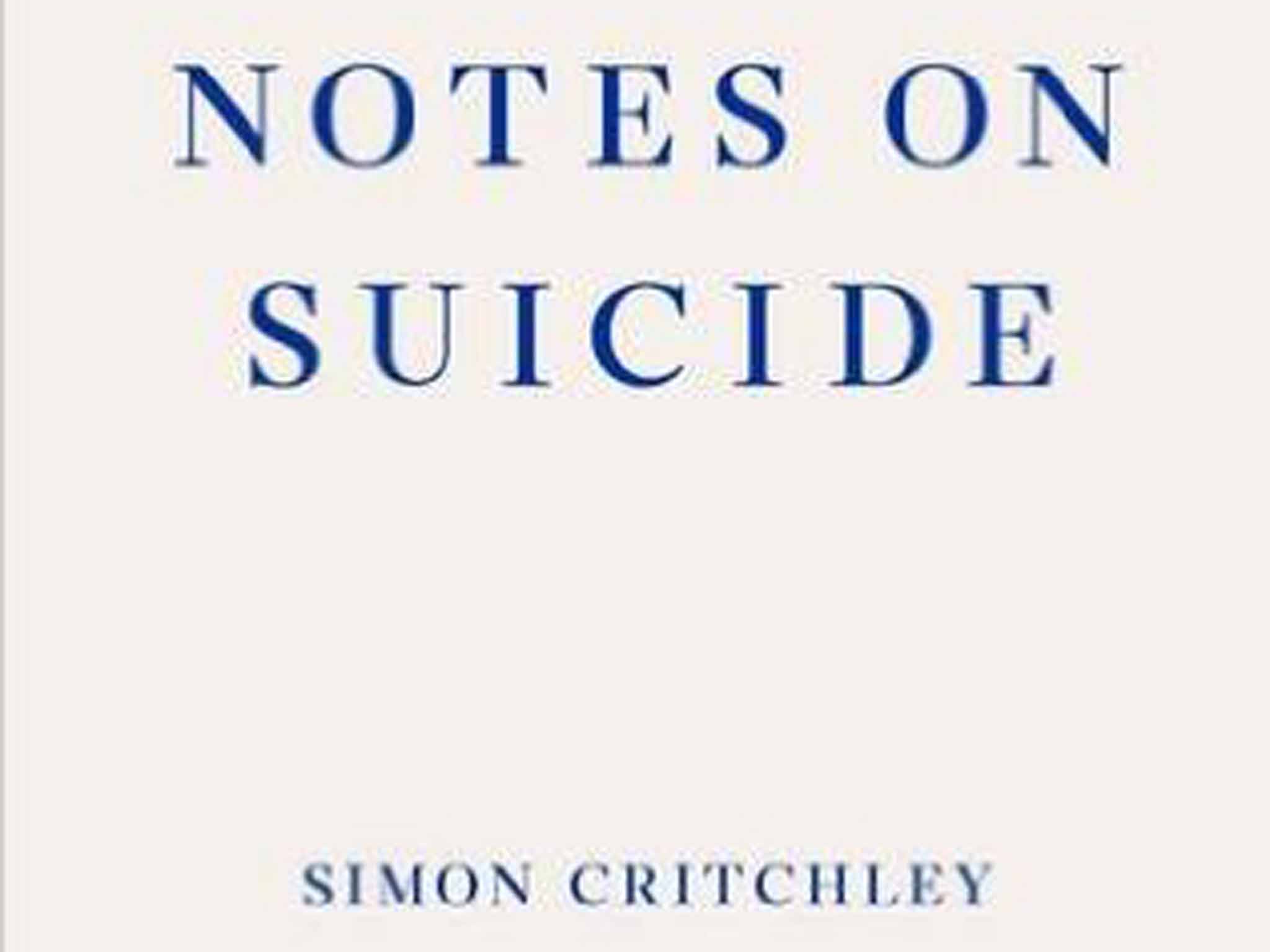Notes on Suicide by Simon Critchley - book review: Why society must confront the stigma around suicide
For most arguments about suicide, there's a counter argument, and Critchley makes us think anew about old questions

In Britain, 6,000 people kill themselves every year and, for men aged 20 to 45, suicide is the most common cause of death. But as the philosopher Simon Critchley explains in this thought-provoking book: “We lack a language for speaking honestly about suicide.” Critchley was “struggling with thoughts of suicide” when, in 2014, he decamped to East Anglia to “think through the subject… in the only way I know – in writing.” His candour and conversational tone creates intimacy between writer and reader, as Critchley draws on thinkers from Plato to David Foster Wallace in an accessible and wide-ranging discussion.
I don't agree that “perhaps the closest we come to death is through writing”. Writers try “to see things more clearly” but comparing this to death imagines the dead looking down from the afterlife, whereas suicide surely involves yearning for oblivion. Critchley is more convincing when he writes: “The legal and moral framework that still shapes our thinking and judgement about suicide is hostage to a Christian metaphysics that declares that life is a gift of God.” This is in part why in New York State suicide is “a grave public wrong” while, in Britain, coroners often deliver narrative verdicts in cases where it's obvious that the deceased killed themselves. It keeps the numbers down, perpetuates stigma and stops us having honest conversations about a major cause of death in our society.
Critchley examines how attitudes to suicide have been challenged through the ages. He analyses suicide notes from the famous – Kurt Cobain, Hunter S Thompson – and obscure, including the Smith family who, in 1732, left their own epitaph: “We were, but now are not; think no more of us…” Then there are those whom we should think about, like the man who, after losing his job in 2008, became one of the many people who take their own lives out of “economic hopelessness”.
For most arguments about suicide, there's a counter argument, and Critchley makes us think anew about old questions. Is suicide selfish? I believed not until a member of my family killed themselves and the pain it caused persuaded me that it's both selfish and stupid. But Critchley reminds us that our responses to suicide are distorted by anger, prejudice and inarticulacy. We must, he argues, stop looking for life's great meaning and instead savour “little daily miracles, matches struck in the darkness”. And we must talk about suicide without shame or sanctimony. This book is a good place to start.
Order for £9.89 (free p&p) from the Independent Bookshop: 08430 600 030. Fitzcarraldo Editions £10.99
Join our commenting forum
Join thought-provoking conversations, follow other Independent readers and see their replies
Comments
Bookmark popover
Removed from bookmarks